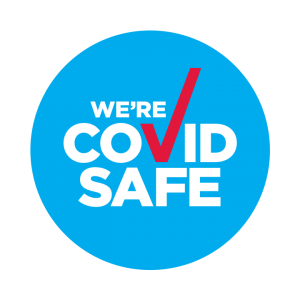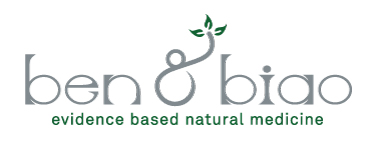So if you are a guy and you are reading this blog then we’d say either
- your girlfriend, partner, wife has said ‘read this blog’ and you feel obliged to! or
- you are taking upon yourself to understand the nutritional requirements for male fertility.
In our blog ‘the most important three months of your fertility journey’ we go through why 3 months is the optimum time to get you and your sperm in top condition and what you should do.
However, sometimes you want to cut to the chase and find out what you need to do so here is our our top 6 nutrient requirements, why and where to find it. At the bottom is a quick menu idea….
Our top 6 vitamin and minerals for male fertility are:
- Zinc
Zinc is found in high concentrations in male sex organs and sperm. Zinc is necessary for making the outer membrane and tail of the sperm, and for sperm to mature properly. Zinc deficiency has been linked to low sperm counts and testosterone levels. Exposure to stress, cigarette smoke, pollution, and alcohol deplete zinc. Zinc supplements have been shown to improve sperm count, motility, form, function, quality, and fertilizing capacity. Men need a minimum of 15 mg of zinc per day, 30mg if you are vegetarian, however when one is looking at fertility issues you can go 50 mg of Zinc per day (please check with health practitioner if this applies to you)
Zinc-rich foods include:
- Raw Oysters (six medium oysters have 16 mg)**
- Lean beef tenderloin (a 3-ounce serving has 4.8 mg)
- Baked beans (a 1-cup serving contains 3.5 mg)
- Dark chicken meat (2.38 mg per 3 ounces).
- Zinc is also found in lamb, pork, shellfish, spinach, and pumpkin seeds
** While Raw Oysters are the richest food source of zinc we would caution eating too many raw oysters during because of the risk of food-borne illness and mercury. Oysters have high levels of two amino acids that help increase levels of sex hormones. Cooking reduces the quantity of the amino acids.
PS: If you are taking zinc supplements, you may need to take copper as well to prevent copper deficiency. (excessive zinc depletes copper – again consult with your health practitioner )
- Folic acid
Studies show that men with low levels of B vitamin Folic Acid have lower sperm counts. Folic acid intake is associated with a statistically significant reduction in frequency of sperm abnormalities in healthy males.
Folic Acid foods include:
- fortified breakfast cereals,
- leafy greens,
- Beans peas and lentils
- oranges and papaya
- Seeds and nuts
- Vitamin C
Vitamin C is an important anti-oxidant that helps prevent sperm defects and boosts sperm motility. Studies have shown that lower levels of vitamin C may lead to infertility and increased damage to the sperm’s genetic material.
Make sure to get 500-1,000 mg of Vitamin C daily, especially if you smoke which saps the antioxidents in your system.
Vitamin C foods include:
- Papaya
- Citrus fruit
- Vitamin D
Vitamin D is essential for the healthy development of the nucleus of every cell including the sperm cell, and helps maintain semen quality and sperm count. Vitamin D also increases levels of testosterone. Vitamin D is free because you can get ample amounts from the sun but in countries like Australia where we slip slap and slop the sun-ream to stop us getting skin cancer we have a high level of vitamin D deficiency. If in doubt top up with vitamin D source foods:
Vitamin D foods include
- Milk and cheese
- Fatty fish like Salmon, Mackerel
- Egg yolks
- OMEGA 3 Oils
Essential fatty acids are necessary to the production of healthy sperm. They improve sperm membranes and protect sperm from oxidative stress. Omega-3s stimulate blood flow to sexual organs and improve sexual function. Inadequate intake of these fatty acids has been linked to poor sperm quality, abnormal sperm, poor motility, and low sperm count, largely because of their role in membrane structure.
Previous research has shown that men with poor sperm counts saw improvement after taking fish oil supplements high in omega-3 fats. Omega 3 is most easily accessible from fish oils. However because pollutants in the waters such as mercury we actually recommend taking this as a high quality, practitioner only prescribed supplement.
Omega 3 foods include:
- Organic or wild salmon, sardines, herring and other low-mercury cold water fish,
- Enriched eggs
- Pumpkin seeds and walnuts.
- Selenium
Selenium is a trace mineral that protects cells from oxidative damage and is helpful for sperm function and fertility. Selenium improves sperm formation, quantity, structure, quality, motility, and function. The epididymis, the tube through which sperm pass from the testicle through the penis, needs selenium to function properly. Selenium deficiency has been linked to male infertility, while selenium supplementation in men has been shown to improve pregnancy rates.
Selenium food sources:
- Brazil nuts (just 2 a day will provide you with your entire needs)
- Eggs,
- Garlic
- Oatmeal
So there you go, our top 6 nutrients. There are of course other important nutrients that are needed and can be missing from a modern diet such as;
- Coenzyme Q
- Vitamin E
- L-arginine
- L-carnitine
- Calcium
However these too can be found in the foods we have already mentioned.
So really nothing has changed from when your grandfather was dating grandma. A clean diet with lots of vegetables, fruit, nuts, seeds, sustainably sourced seafood and meat is maybe all you need to help along the next generation.
Still wondering what to eat tonight?
You could go to a reputable bar or restaurant, order a plate of raw oysters, drink a glass of orange juice, have a couple of brazil nuts mixed in a green salad, followed by a small glass of shiraz (did we mention a SMALL glass of red is an anti-oxidant) take a walk back in the sun and voila…baby making nutrition is done for the day…
If you think you may have other issues such as stress, insomnia, more serious sperm viability issues, or would like further help with your diet plan, then please make an appointment to speak to Heidi or Sally at BOOK NOW



